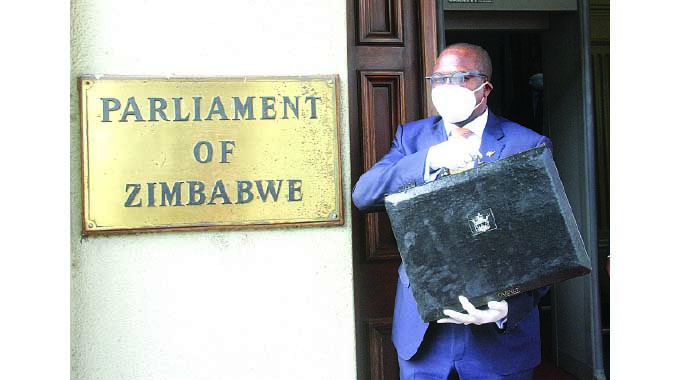Year-end inflation target set at 58pc

Golden Sibanda
FINANCE and Economic Development Minister Mthuli Ncube yesterday revised upwards the year-end inflation target to between 52 and 58 percent citing recent inflationary pressures.
The Treasury chief had earlier forecast inflation to close the year between 25 and 35 percent after the rate registered a rapid decline this year to hit a two year low of 50,2 percent in August 2021.
Notably, the 25-35 percent range projection was itself a revised target of the initial forecast authorities had made in the year; that the inflation would fall below 10 percent by December 2021.
Pressures from parallel market exchange rate volatility caused by unscrupulous open market dealers and some unruly traders and selected businesses have been blamed for stocking inflation embers.
Minister Ncube revealed the new inflation target yesterday while presenting his 2022 National Budget, which expects economic growth to continue as earlier predicted at 7,8 percent this year and 5,5 percent in 2022.
Fiscal authorities also said they will work gloves out to achieve a 2022 year end inflation level of between 15 percent and 20 percent, Minister Ncube told lawmakers.
“Government is, however, implementing the necessary policy measures to ensure that inflation is back on the single digit desired path and this includes a review of the current foreign currency auction system, further tightening of monetary policy and curbing malpractices in the financial sector,” the minister said.
Click link below to view National Budget Statement
https://www.herald.co.zw/wp-content/uploads/sites/2/2021/11/2022-National-Budget-Statement.pdf
Annual inflation continued to decline during the greater part of 2021 to register 54,5 percent by October 2021 compared to 471.3 percent recorded during the same period last year.
In fact, Zimbabwe’s inflation rose rapidly last year following the reintroduction of Zimbabwe, in 2019, from a multicurrency regime that was dominated by the US dollar.
The annual rate touched a post dollarisation high of 837,5 percent before spiralling down on account of a cocktail of monetary and fiscal measures adopted by the Government.
The disinflationary path this year was underpinned by both tight fiscal and monetary policies. Conservative reserve money targeting and the introduction of the foreign exchange auction system for key imports has brought stability in the foreign exchange market and consequently enforced the inflation fall.
Minister Ncube said the widening of the parallel market premiums to over 50 percent beginning in August 2021, threatened to reverse the gains made on the inflation front.
“The widening gap is partly attributed to general indiscipline by market players. The increase in international food and energy prices, as well as global inflation continue to exert additional inflationary pressures on the domestic economy,” the minister said.
Maintenance of price and exchange rate stability over the medium to long term, the minister said, was central in fostering business medium term planning and investment for the achievement of National Development Strategy (NDS1) objectives.
“In this regard, both fiscal and monetary measures seek to achieve an average inflation target of 32,6 percent and end period range of 15 percent to 20 percent in 2022, consistent with the macro-fiscal framework anchoring the Budget,” he said.
Globally, the finance minister said, inflation was on the rise mainly due to Covid-19 pandemic-related supply chain disruptions and firming of energy prices.
Further, he noted that inflation in advanced economies was expected to subside as inflation expectations were well anchored, while in developing countries inflationary pressures were expected to persist on account of elevated food prices, lagged effects of higher oil prices, and exchange rate depreciation.











Comments